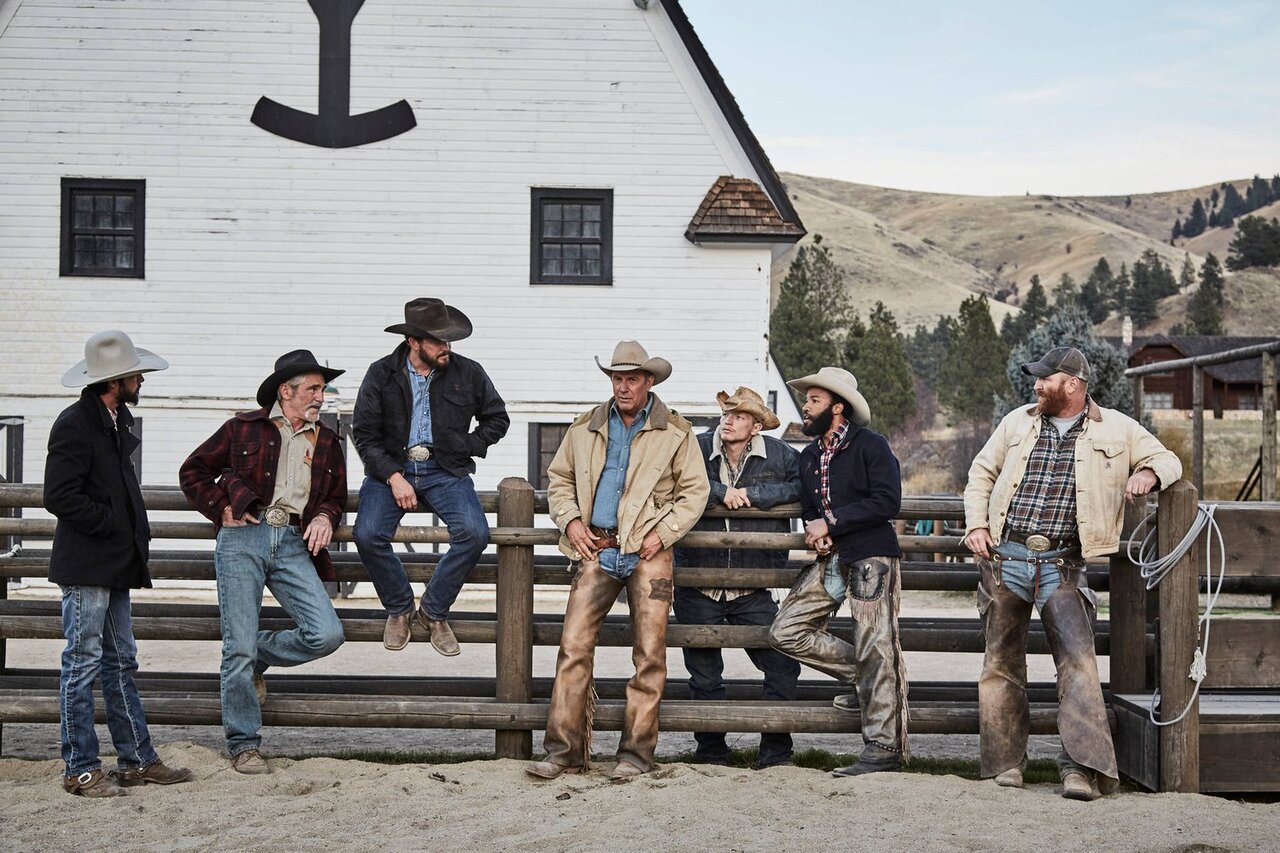Lonely Cowboy Philosopher: Unpacking Taylor Sheridan's Neo-Western World

TEHRAN- Taylor Sheridan is an American screenwriter, director, and producer known for his modern Westerns like “Hell or High Water”, “Sicario”, and the hit series “Yellowstone”. A Texan who dropped out of college and spent years playing minor roles, Sheridan rose to prominence with screenplays that grapple with violence, family, land, and the law.
His narrative world is gritty America: the borderlands, the wide plains, and ranches where loyalty, blood, death, and revenge shape identity. His heroes are often quiet, tough men—distrustful of government, bound to the land, and fiercely loyal. Sheridan’s works mix moral drama, psychological thriller, and the neo-Western style.
He is a craftsman who trusts lived experience over theory. This instinctive loyalty to place and people often drives his engagement with power, law, and history. In his world, justice is often found at a gun’s end, and family outranks the state. His language is terse and final—yet beneath the punch lies a struggle with sorting values, not always clearly resolved.
Sheridan is the voice of an America that believes it’s hurting—crying out in pain without seeing the full shape of its injuries. A culture-maker more than a thinker, he doesn’t write from frameworks. Culture-makers live in the moment. They create with instinct, sensitivity, and emotional memory—not theory, not blueprints. Their creativity pulses with feeling, not footnotes. Often, they don’t even know why they’re repeating something—they just trust the life in it.
So, we shouldn’t expect Sheridan’s works to offer coherent philosophical systems. They weren’t designed that way. Culture isn’t built through clarity—it’s built through living. And life is foggy, slippery, full of sharp turns and messy contradictions.
The world he’s crafted for us
Let’s look closer. Sheridan’s worlds sit far from cities—in border zones, plains, and native lands. These are places of raw scale and fragile freedom. Ownership, blood loyalty, revenge, and broken laws sit at the heart of his stories. They carry a wild, beating pulse—a rebellion born of instinct, not ideology.
His stories aren’t driven by logic. They’re intense and visual, yet still anchored in sharp, resonant dialogue. The narrative hits hard, the values linger underneath. His characters don’t explain—they act. The words cut like knives.
His scope is broad. From indie films to sprawling TV dynasties, all formats become a tool for his storytelling. And he doesn’t pretend to wait for the audience’s opinion. Sheridan isn’t hosting a conversation—he’s delivering a vision. Actors, known or unknown, professional or fresh, become instruments for that vision.
You can call his work neo-Western, social drama, or moral thriller. But none of those fully contain it. Genres, like his small but loyal creative crew, serve a deeper goal: channeling a steady, lived-in gaze on land, blood, and loyalty.
Family, family name, family land. The land as a reflection of family. Lineage, blood, and soil—his core motifs are layered into every frame. He plants sharp, mythic speech straight into characters’ mouths—clear, almost legendary—and yet the narrative holds strong.
The first crack
But after marveling at all this strength and beauty—like the perfectly shaped, power-laden muscles of Ronnie Coleman at his peak—you begin to see the fissures. The moral speeches, however stirring, come from a highly local perspective. His work is experience-rich, but theory-light. It rarely connects its fierce emotion to larger social histories or systems.
If it did, it wouldn’t present agrarian patriarchy as a nostalgic cure. It wouldn’t paint the old landowning man as the righteous rebel. And we’d see more ways to fight injustice than firing a gun.
That’s the deeper flaw here—not just moral, but practical. You can’t shoot your way through systemic problems. Violence might make a great scene, but it doesn’t remake culture. This isn’t Marvel. And it’s not the 1800s.
When Sheridan throws nostalgia, violence, love, ownership, and brutality into the same pot, he’s hoping for a stew. But often, the flavors clash. There’s no recipe—just a memory of something that once felt like home.
Another tension: the voice of the oppressed comes from the mouth of the powerful. Land-rich ranchers may not match the Rockefellers, but they’re hardly icons of victimhood.
The creator’s winding path
Sheridan, as we’ve said, is a creator, not a critic. And even critics often fail to notice how a storyteller’s life and work collide. So, it’s no surprise Sheridan might not see the contradictions between his real-life position and the underdog roles he writes.
He made a bold choice early: walking away from university. It was honest and brave. But it came with baggage. He clearly sees academia as either deceitful or out of touch—and he chooses experience over theory every time.
Remember that striking scene in “Yellowstone”, when John Dutton faces off with vegan activists? He doesn’t moralize. He talks about how growing quinoa kills animals too. It’s practical, grounded—and likely, that’s Sheridan himself speaking.
And maybe, if you squint, you can see Clint Eastwood’s ghost in his shadow. Not just the laconic gunslinger—but the Eastwood who directs: silent, deliberate, anti-global, suspicious of modern equality talk, quietly reasserting a traditional order.
If so, then Sheridan is the young heir. Eastwood grew cautious. Sheridan pushes forward—more faithful, more committed, less shaken by doubt.
You can’t box him in politically. He echoes the right, but isn’t quite right. He hints at the left, but doesn’t sit there either. More than anything, he’s part of a cultural group that feels left behind—turning back toward land, blood, and the values of an old-school America.
He warms himself with memories of his granddad’s ranch—and now, perhaps, with the vast 6666 Ranch he owns. But this life isn’t scalable. And deep down, Sheridan probably knows that too.
Leave a Comment